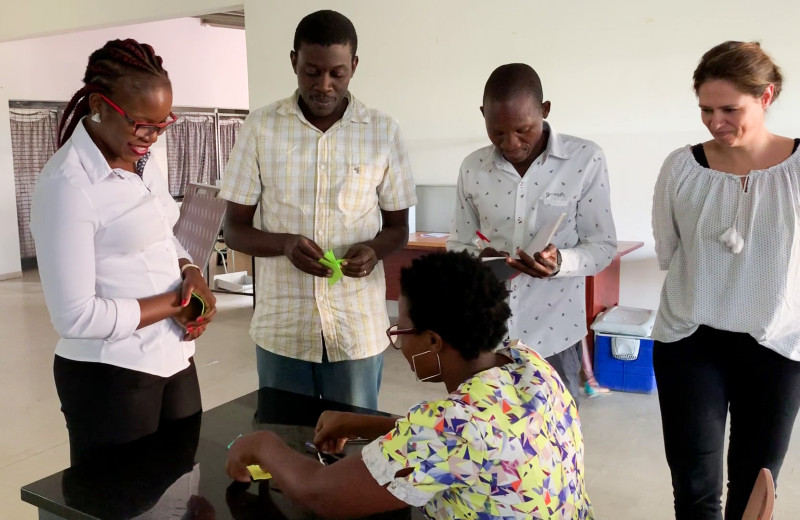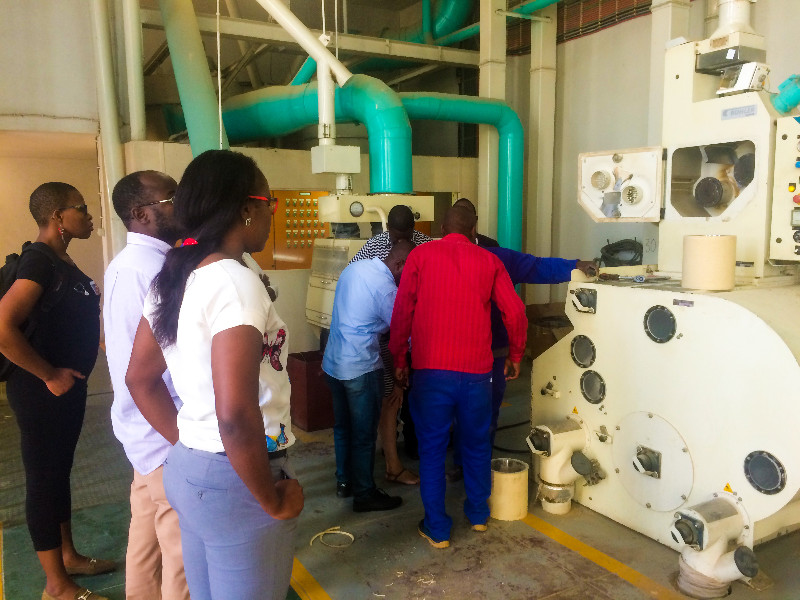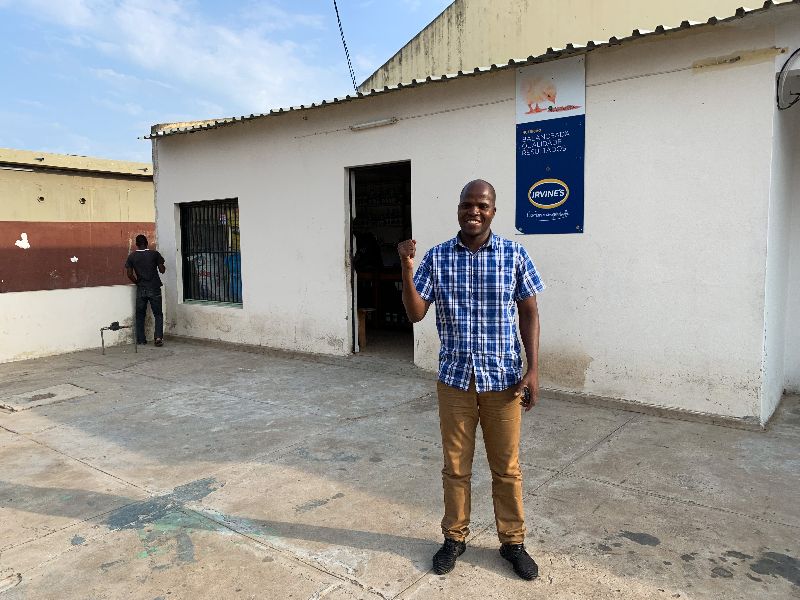For ISPG (Instituto Superior Politécnico de Gaza, click here for the ISPG website), Q‑Point tendered for a tailor-made training (TMT) aimed at strengthening entrepreneurship and applying a multi-disciplinary approach to boost food security, production and inclusive value chain development in the Gaza province in Mozambique. Q-Point B.V. and ISPG already knew each other well from previous Nuffic programmes.
After Nuffic awarded the implementation of the submitted proposal to Q-Point, we developed and implemented an inclusive and gender-sensitive training for 18 ISPG staff members (9 female) on value chain management and development, value addition, post-harvest handling, post-harvest, processing and agri-business entrepreneurial skills development including marketing skills.

Market simulation game ISPG to understand market dynamics
ISPG expressed their need to capacitate staff in critical fields of market-oriented production, crop diversification and diet diversification, post-harvest handling and processing, inclusive value chain development and agri-business management.
ACHIEVEMENTS TMT
ISPG staff now is able to apply and integrate the trained and practiced approaches and methodology. They now can develop innovative and market-led value-added activities in their teaching and research programmes. ISPG trainees have completed the full cycle of developing a value-added business in Mozambique. All materials such as tools are available to be implemented at ISPG.
A relevant number of staff members have been trained in the approach and methodology to implement this cycle. In addition, action plans were developed during the training courses for the implementation and institutionalisation of knowledge, skills and materials.

Visit ISPG local rice factory
SET-UP TMT
This project contained three separate training courses.
The entrepreneurship training contained an overview on the entrepreneurship climate in Mozambique, the importance of entrepreneurship, the key qualities of entrepreneurs including a self-assessment, how to convert an idea into a business, a business model canvass tool and how to define a value proposition.
In addition, two important questions where addressed: ‘What can ISPG do to become more entrepreneurial as in institution?’ and ‘What can ISPG do to deliver more entrepreneurial graduates?’ This discussion resulted in concrete implementable ideas for ISPG and its staff.
The value chain training was given by the same trainers: Boaz Liesdek and Simone Langhorst. This week, the trainers focused on the different value chains in Mozambique and had the participants work with the NIMPF (Net chain Improvement Framework) tool to analyse chains.
This was placed as well in the context of entrepreneurship and finding opportunities to start a business, optimise the chain, create jobs and increase food security.

Visit ISPG to SME Sebastiao Jorge Mahunguane, +Forte
The last training related to post-harvest management. Current post-harvest handling and processing practices at ISPG and the local community were discussed. The trainers, Olivia Ansenk and Fabienne Hins, provided insight into technology for the storage, packing and handling of fresh horticultural products, including information on ripening and spoilage processes and factors for measuring and evaluating the product quality of fruit and vegetables.
Time has also been devoted to the food system approach: not only looking at post-harvest opportunities but also looking at aspects of the environment and socio-economic actors in their business model.
FEEDBACK PARTICIPANTS
- “I liked the way the content was transmitted. The issues raised by the trainers were relevant and contributed in some way to how I viewed entrepreneurship.”
- “What I liked most was the interaction between trainers and trainees during sessions. Practical sessions!”
- “What I liked most: competitive advantage of value chain, diamond model, strategies of chain, how to create alliances, analysis, methods to measuring value chain, diagnosis (SWOT) in value chain, how to involve the stakeholder in VC. Having good knowledge will help make decisions across the value chain.”
This project is part of the Orange Knowledge Programme, click here fore information on the Orange Knowledge Programme.



